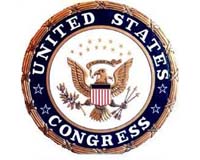| . |  |
. |
Beijing (AFP) Nov 5, 2010 A senior Chinese official on Friday rejected a proposal by US Treasury Secretary Timothy Geithner to set targets to rein in global trade imbalances, throwing a spanner in next week's Group of 20 summit. Vice Foreign Minister Cui Tiankai, China's top negotiator on G20 issues, also called on the US Federal Reserve to explain its decision to spend 600 billion dollars buying government bonds to kickstart the US recovery. His comments could set the stage for a difficult summit in Seoul next week, with efforts to reduce destabilising imbalances and the Fed's move expected to top the agenda for leaders of the world's major economies. "The artificial setting of a numerical target cannot but remind us of the days of a planned economy," Cui said, according to Dow Jones Newswires. "We believe a discussion about a current account target misses the whole point. If you look at the global economy, there are many issues that merit more attention -- for example, the question of quantitative easing." Geithner suggested at a meeting of G20 finance ministers last month in South Korea that members assign a specific limit for their current account surpluses or deficits -- four percent of gross domestic product. Targeting China's hefty current account surplus would be an indirect way for Washington to cajole Beijing into relaxing its grip on the yuan and allow the currency to appreciate -- a move demanded by key trading partners. India also is not keen about targets: Finance Minister Pranab Mukherjee told the Financial Times last week that the G20 should look to devise a "formula based on country-specific solutions", not a numerical "straitjacket". Cui also called on the US Federal Reserve to explain its decision this week to pour more money into the flailing US economy, which has sent stock markets soaring but raised alarm bells across Asia. The Fed's move, which follows a similar quantitative easing worth about 1.5 trillion dollars during the crisis, has stoked fears of a deluge of speculative cash into emerging markets by players seeking higher non-dollar returns. "It would be appropriate for someone to step forward and give us an explanation. Otherwise, international confidence in the recovery and growth of the global economy might be hurt," Cui said. The United States "owes us some explanation," he added. People's Bank of China governor Zhou Xiaochuan said while the Fed may have made the best decision for the US, the move was "not necessarily optimal for the world". "It may cause a lot of negative impacts for the world economy," Zhou said at a financial forum in Beijing. An advisor to the PBoC, Xia Bin, lashed out at the US issuance of dollars as "abusive" and called on developing countries to take capital control measures to "prevent hot money inflows from impacting their economy". "If there is no restraint in issuing major global currencies such as the US dollar, the occurrence of another crisis is inevitable," the Beijing News quoted Xia as saying. The United States and Europe accuse China of deliberately holding down the value of the yuan to benefit exporters. The currency has appreciated about 2.4 percent against the dollar since Beijing pledged in June to loosen its grip. Japan, South Korea, Brazil and Indonesia among others have intervened unilaterally in recent weeks to curb the alarming rise in their currencies, which is hurting their exporting companies. Cui said China would not set any targets for the yuan's appreciation. "That would indeed be asking us to manipulate the renminbi's exchange rate, and that is something that we will of course not do," he said, using the official name for the yuan.
Share This Article With Planet Earth
Related Links Global Trade News
 Trade and the Republican takeover
Trade and the Republican takeoverWashington (UPI) Nov 4, 2010 The shift to Republican control in the U.S. House of Representatives may bode well for international trade policy, where the United States is lagging behind its global counterparts. "We are falling behind. Our competitors such as the Europeans and the Japanese are forming free trade agreements, especially with the Asian nations," said Thomas Duesterberg, president and chief executive of ... read more |
|
| The content herein, unless otherwise known to be public domain, are Copyright 1995-2010 - SpaceDaily. AFP and UPI Wire Stories are copyright Agence France-Presse and United Press International. ESA Portal Reports are copyright European Space Agency. All NASA sourced material is public domain. Additional copyrights may apply in whole or part to other bona fide parties. Advertising does not imply endorsement,agreement or approval of any opinions, statements or information provided by SpaceDaily on any Web page published or hosted by SpaceDaily. Privacy Statement |